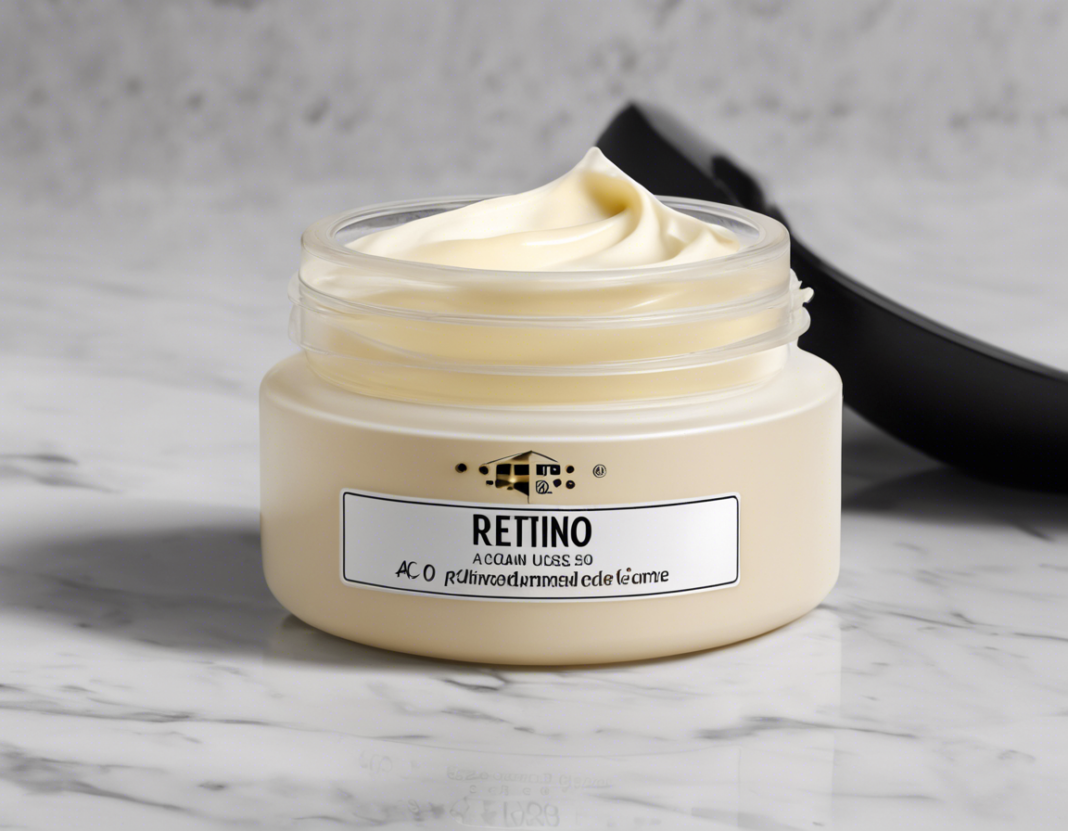Retino-A 0.05 Cream, also known as Tretinoin, is a popular topical medication used to treat various skin conditions. Tretinoin is a form of vitamin A that helps the skin renew itself. It is widely used to improve the appearance of acne, fine lines, and discolored skin. In this comprehensive guide, we will explore the benefits, uses, and precautions of using Retino-A 0.05 Cream.
What is Retino-A 0.05 Cream?
Retino-A 0.05 Cream contains Tretinoin, a retinoid that is commonly used in dermatology for various skin conditions. It is available by prescription and works by increasing the turnover of skin cells, which helps the skin to renew itself more quickly.
Benefits of Retino-A 0.05 Cream:
1. Acne Treatment: One of the primary uses of Retino-A 0.05 Cream is in the treatment of acne. It helps to unclog pores, reduce inflammation, and promote the shedding of dead skin cells, which are all essential in the treatment of acne.
-
Anti-aging Properties: Tretinoin is known for its anti-aging properties. It can help to reduce the appearance of fine lines, wrinkles, and age spots by stimulating collagen production and increasing skin cell turnover.
-
Hyperpigmentation: Retino-A 0.05 Cream can also be used to treat hyperpigmentation, including dark spots, melasma, and post-inflammatory hyperpigmentation. It helps to even out skin tone and improve overall skin texture.
How to Use Retino-A 0.05 Cream:
1. Consult a Dermatologist: Before using Retino-A 0.05 Cream, it is essential to consult a dermatologist to determine if it is suitable for your skin type and condition.
-
Start Slowly: Begin by using the cream every other night to allow your skin to adjust to the medication. Gradually increase the frequency as tolerated.
-
Apply a Pea-sized Amount: Use a pea-sized amount of Retino-A 0.05 Cream and apply a thin layer to the affected areas. Avoid applying near the eyes, mouth, and any broken or irritated skin.
-
Moisturize: Due to its drying effect, it is recommended to use a moisturizer after applying Retino-A 0.05 Cream to prevent dryness and irritation.
Precautions and Side Effects:
1. Sun Sensitivity: Tretinoin can make your skin more sensitive to the sun. It is crucial to use sunscreen daily and avoid prolonged sun exposure.
-
Skin Irritation: Some common side effects of Retino-A 0.05 Cream include redness, peeling, and dryness. If the irritation persists, consult your dermatologist.
-
Avoid Certain Products: Avoid using harsh skincare products, exfoliants, and other medications that can further irritate the skin while using Retino-A 0.05 Cream.
FAQs (Frequently Asked Questions):
1. Can Retino-A 0.05 Cream be used for sensitive skin?
Retino-A 0.05 Cream can be harsh on sensitive skin. It is advisable to start with a lower concentration of Tretinoin and gradually increase as tolerated. Consulting a dermatologist is recommended for sensitive skin.
2. How long does it take to see results with Retino-A 0.05 Cream?
Results may vary, but it usually takes several weeks to months to see significant improvement in skin texture, acne, and pigmentation with consistent use of Retino-A 0.05 Cream.
3. Can Retino-A 0.05 Cream be used during pregnancy or breastfeeding?
It is generally not recommended to use Retino-A 0.05 Cream during pregnancy or while breastfeeding due to its potential effects on the fetus or infant. Consult with a healthcare provider before use.
4. Is it safe to use Retino-A 0.05 Cream in the summer?
Using Retino-A 0.05 Cream in the summer requires extra caution due to increased sun sensitivity. It is crucial to use sunscreen daily and limit sun exposure to prevent skin damage.
5. Can Retino-A 0.05 Cream be used with other skincare products?
Avoid using harsh exfoliants, products containing alcohol, or other skin irritants while using Retino-A 0.05 Cream. Consult with a dermatologist to determine the compatibility of other skincare products.
In conclusion, Retino-A 0.05 Cream is a versatile treatment for acne, anti-aging, and hyperpigmentation. When used correctly and consistently, it can significantly improve the overall appearance and health of the skin. However, it is essential to follow guidelines, consult a dermatologist, and be diligent with sun protection while using this medication.






